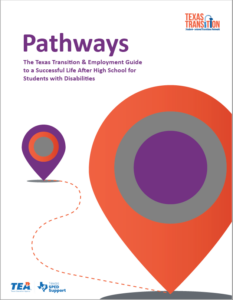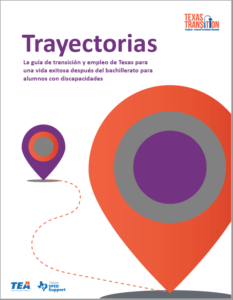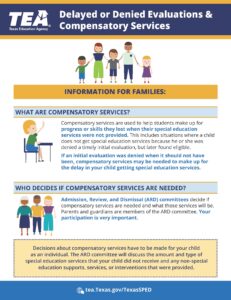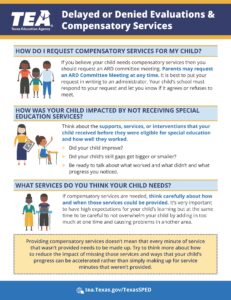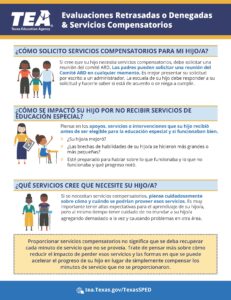The term “special education” means specially designed instruction to meet the unique needs of a child with a disability. At no cost to parents, special education provides additional services, support, programs, specialized placements, and environments to ensure that all students’ educational needs are met. Support and services are provided in the least restrictive environment and the special education curriculum addresses the Texas Essential Knowledge and skills (TEKS) mandated by the state for all students in Texas.
An Admission, Review and Dismissal Committee (ARDC) or (ARD) individualizes the specific curriculum objectives, instructional accommodations, mastery level and location of services for each student based on the impact of the student’s disability on his/her ability to progress in the state curriculum. The University of Texas Elementary School Special Education Department believes all students can achieve; therefore, we are committed to identifying and meeting the diverse needs of each student through individualized educational programming. It is our mission to work cooperatively with families, students, community, colleagues, and other professionals in order to promote each student’s success and well-being as he/she prepares for future endeavors.
All children have the right to an education provided at public expense, under public supervision and direction, and without charge. The quality of the education for the special education student must be commensurate with that of the regular education student and must meet the state standards of the Texas Education Agency.
We have a philosophy at UT Elementary that supports teaching to the spirit of every child. We plan for the needs of the special education students with input from both regular education and special education teachers, in addition to parents, support staff, and others. Professional development is consistently provided to the entire staff on current topics and issues in special education. Our teachers frequently dialogue with each other and offer “best practices” that transcend the boundaries of regular and special education in order to provide the highest quality instruction for each child.
It is very important that students of varying ability levels learn how to interact with one another. Tolerance for differences is a precursor to true acceptance and respect.
Questions regarding programs and services can be directed to UT Charter School System Director of Special Programs:
Janina Roberts email: jroberts@austin.utexas.edu or phone (512) 495-3303
The information contained in the following link to the US Department of Education website is intended to provide Texas families with information regarding the Individuals with Disabilities Education Act (IDEA), Dyslexia, Multi-Tiered Systems of Support, and Section 504 of the Rehabilitation Act of 1973. https://sites.ed.gov/idea/?src=search
La información contenida en el siguiente enlace al sitio web del Departamento de Educación de los EE. UU. tiene como objetivo proporcionar a las familias de Texas información sobre la Ley de Educación para Individuos con Discapacidades (IDEA), la dislexia, los sistemas de apoyo de múltiples niveles y la Sección 504 de la Ley de Rehabilitación de 1973. https://sites.ed.gov/idea/?src=search
Special Education Department
The University of Texas Elementary School provides specially designed instructional supports and services for students with disabilities eligible for special education services. Individual Education Plans (IEPs) are developed for each eligible student that include differentiated instruction, curricular accommodations and/or modifications, individualized and/or small group instruction, inclusion and/or pull-out services, special materials and other services which enrich education for our students.
Support and services are provided in the least restrictive environment and to help students with disabilities access the Texas Essential Knowledge and skills (TEKS) mandated by the state for all students in Texas. An Admission, Review and Dismissal Committee (ARDC) or (ARD) individualizes the specific curriculum objectives, instructional accommodations, mastery level and location of services for each student based on the impact of the student’s disability on his/her ability to progress in the state curriculum.
Individual Education Plan
Each of UT Elementary School’s special education students has an Individual Education Plan (IEP). The plan specifies the services that will be provided for the student, including the length of services and the venue in which they will be delivered. The IEP clearly states the child’s current levels of academic achievement and functional performance. It states the goals for the coming year and consistently monitors individual progress. These services and guidelines are determined jointly by the Admission, Review and Dismissal Committee which consists of school professionals and the parent or guardian.
Due Process Procedures
Parents are notified of the time and place for the annual review. A parent is not legally bound to attend the meeting, but we at the The University of Texas Elementary School do everything we can to ensure that they have the opportunity to be present. Notice is given of each evaluation instrument, procedure, test, record, or report the school has used as basis for changes in the IEP. If the parent or guardian needs help in understanding the instruments or procedures, they are welcome to meet with us. They may also seek outside help if they wish.
TEA designed the Special Education Dispute Resolution Handbook to assist parents, school officials, and other interested parties with understanding TEA’s special education dispute resolution system. The handbook contains information about the due process hearings program including FAQs. It is not intended to be legal advice. If you need legal advice about a special education matter you should contact a private attorney. The Special Education Dispute Resolution Handbook is also available in Spanish.
Resources for Students Who were Previously Denied Services:
Resources below can assist parents whose children may have been previously delayed or denied an evaluation under the IDEA in requesting compensatory services for their child.
https://tea.texas.gov/sites/default/files/Comp_Services_One_Pager_Sept_2021_ACC.pdf
Se requiere que las LEA de Texas publiquen en sus sitios web los documentos vinculados a continuación para ayudar a los padres cuyos hijos pueden haber sido previamente retrasados o denegados una evaluación bajo IDEA a solicitar servicios compensatorios para su hijo.
https://tea.texas.gov/sites/default/files/Comp_Services_One_Pager_Sept_2021_SPANISH_ACC.pdf
Transition
Transition services and activities must be included in the development of the IEP no later than the first IEP to be in effect when the student turns 14, or younger if determined appropriate by the IEP Team, and must include appropriate measurable post-secondary goals based upon age appropriate transition assessments related to training, education, employment, and where appropriate, independent living skills.
Transition services and activities (including courses of study) needed to assist the student in reaching post-secondary goals must be based on the individual student’s needs, strengths, preferences, and interests and must include instruction, related services, community experiences, employment and other post-school adult living objectives, and if appropriate, acquisition of daily living skills and functional vocational evaluation.
A student with a disability must be invited to attend their IEP meeting whenever post-secondary goals and transition services are considered. Upon reaching the age of majority (age 18 in Texas), the parental rights transfer to the adult student. With the consent of the parent or adult student, a representative of any participating agency that is likely to be responsible for providing or paying for transition services must also be invited to attend the IEP meeting.
Finally, prior to graduation from secondary school, the student must be provided with a summary of academic achievement and functional performance, including recommendations for assistance the student may need to meet their post-secondary goals.
More information about the transition from secondary school settings to post-school settings (including: adult life, continuing education or employment), is available in this Pathways Guide:
Additional resources about secondary transition and post-school results are available from the Texas Education Agency’s Texas SPED Support website at https://spedsupport.tea.texas.gov/
Individuals with Disabilities Education Act
The Individual with Disabilities Education Act (IDEA), revised in 2004, includes four major components:
- Free and appropriate public education, including related services that can range from speech therapy to transportation and health screenings;
- A least restrictive environment (LRE);
- An Individualized Educational Program (IEP);
- Due process procedures for parents, guardians, and children.
The intent of the IDEA is for children with disabilities to be educated with their peers who do not have disabilities to the maximum extent possible. IDEA (2004) specifically states that:
“To the maximum extent appropriate, children with disabilities, including children in public or private institutions or other care facilities, are educated with children who are not disabled, and special classes, separate schooling, or other removals of children with disabilities from the regular educational environment occurs only when the nature or severity of the disability of a child is such that education in regular classes with the use of supplementary aids and services cannot be achieved satisfactorily.” [Section 612(a)(5)(A)]
Dyslexia Handbook
The Texas Dyslexia Handbook is developed and adopted into administrative rule by the Texas State Board of Education. The handbook contains guidelines for school districts to follow as they identify and provide services for students with dyslexia. In addition, information regarding the state’s dyslexia statutes and their relation to various federal laws is included.
- Important updates to the 2021 Texas Dyslexia Handbook
- Actualizaciones importantes del manual de dislexia de Texas 2021
Child Find
The purpose of Child Find is to locate, identify and evaluate children from birth to 21 years of age with disabilities and their possible need for special education and related services. Child Find is a free referral and information service available to local education agencies and Education Service Center Region 13.
Children learn at different rates, but some children have significant difficulty in one or more of the following areas: social interaction, play, speech and language, vision, hearing, attention, behavior, or coordinating movements. Child Find exists to provide assistance in accessing services to meet the unique learning needs of every child. If you are concerned that your child may be learning, playing or interacting differently from others, please call the special education department of your local education agency or ESC Region 13.
SB 139 Notice to Families / SB 139 Aviso a las familias
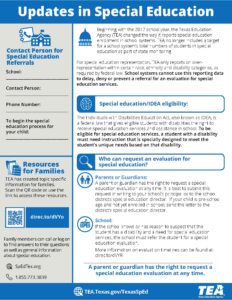 Download the Update Here: Updates-on-Special-Education fall 22
Download the Update Here: Updates-on-Special-Education fall 22
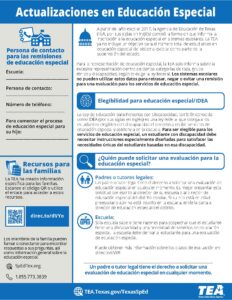 Descarga la Actualización aquí: updates-on-special-education-spanish
Descarga la Actualización aquí: updates-on-special-education-spanish
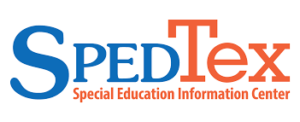
The Special Education Information Center (SPEDTex) provides resources and interactive features for increasing family awareness of disabilities and special education processes, with the goal of improving partnerships between schools and families.
Contact information:
Website: www.spedtex.org
Phone: 1-855-773-3839
Email: inquire@spedtex.org
Live Chat: www.spedtex.org
Direct Link to Resources from the Texas Education Agency
For information directly from the Texas Education Agency (TEA) on; IDEA, Dyslexia, MTSS and Section 504, please see their website:
https://tea.texas.gov/academics/special-student-populations/special-education/resources
Compensatory Services / Servicios Compensatorios
Resources below can assist parents whose children may have been previously delayed or denied an evaluation under the IDEA in requesting compensatory services for their child. A copy of the Delayed or Denied Evaluations & Compensatory Services flyer is provided to all families of students with disabilities and is posted in the administrative offices of all campuses.
Comp_Services_One_Pager_Sept_2021_ACC
Comp_Services_One_Pager_Sept_2021_SPANISH_ACC
Resources
- Child Find Link
- Updates for Special Education-Referral-UT Elementary updates in sped
- Actualizaciones para educación especial-Remisión-UT Elementary updates in sped
- Notice of Procedural Safeguards – 2025 English
- Aviso Sobre Procedimientos de Protección – 2025 Spanish
- Parent’s Guide to the Admission, Review and Dismissal Process – 2025 English
- GuÍa Para Padres del Proceso de Admisión, Repaso, y Retiro – 2025 Spanish
Parent-Directed Special Education Services
The Parent-Directed Special Education Services (PDSES) program is a one-time $1,500 online grant for parents/guardians of eligible students served by special education and who are enrolled in a Texas public school. Parents/guardians of eligible students can use the online accounts to shop the marketplace to obtain educational materials and resources such as textbooks, curriculum, or technology devices and/or services such as additional speech therapy, tutoring, or other specific services. The PDSES program is the same as the Supplemental Special Education Services (SSES) program, just with a new name to better reflect the importance of parents as decision makers in the educational process. The same students who were eligible for the SSES program are eligible for the PDSES program. If students already received an SSES grant, they will not be eligible for a PDSES program grant.
The 2025-2026 application window will open in the Spring of 2026, please check back here for specific dates or you can sign up for PDSES email updates below.
For additional information regarding the application process, eligibility and frequently asked questions please visit: https://tea.texas.gov/academics/special-student-populations/special-education/parent-directed-special-education-services-pdses



